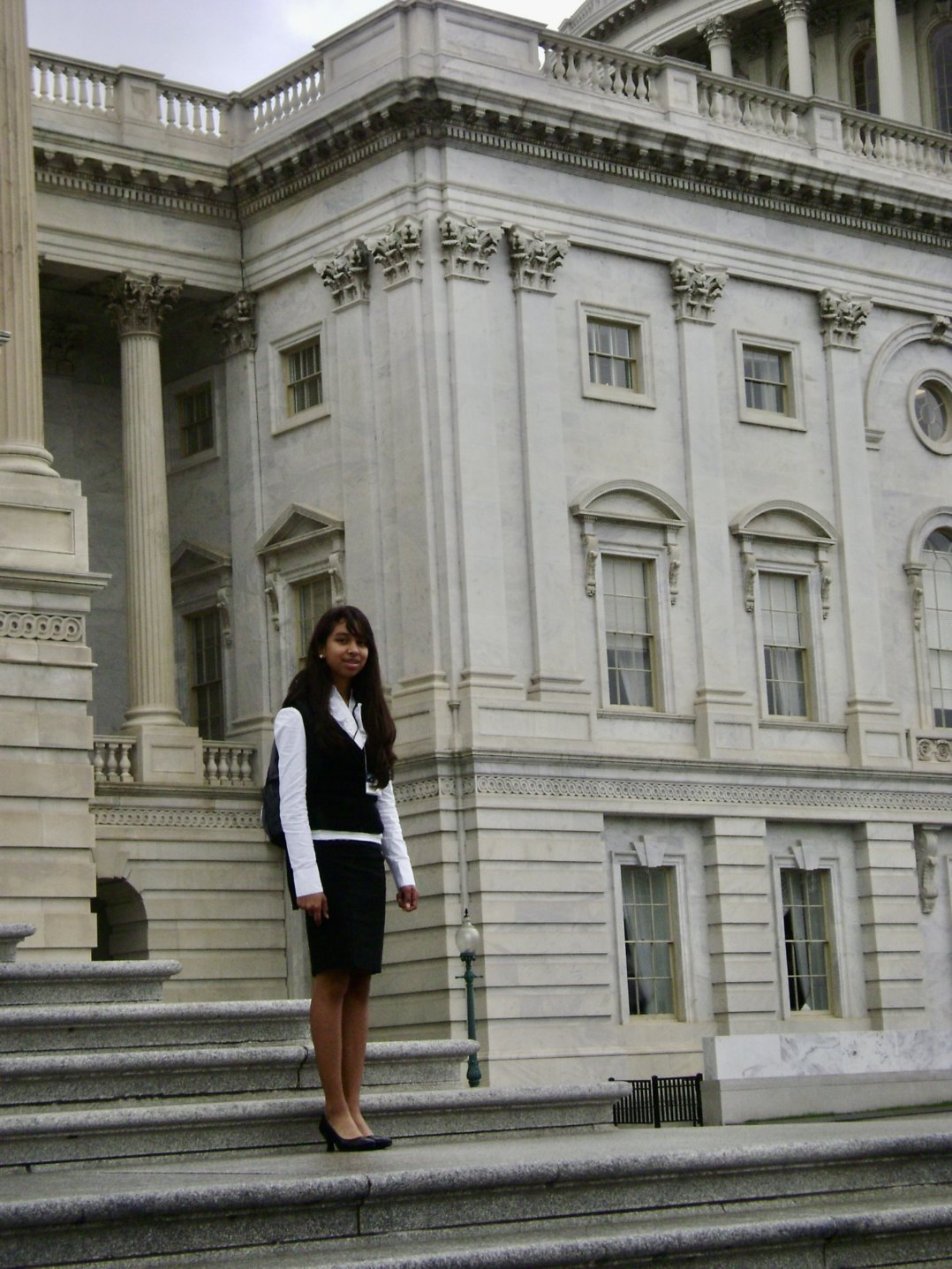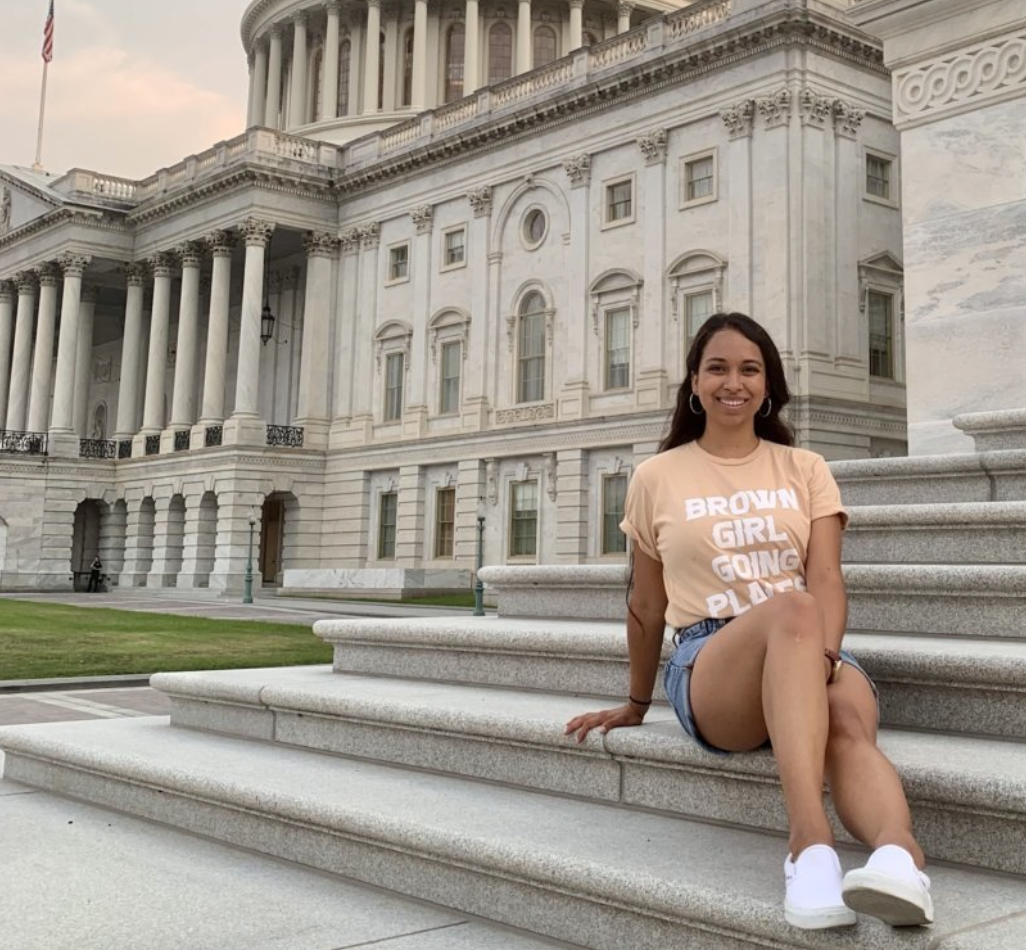I was born in Yuma, Arizona, a small city that sits on the southwest corner of Arizona, bordering both Mexico and California. It’s not a big city, but the impact it has on the United States is huge. It is the largest producer of vegetables in the United States and shares this responsibility with the Salinas Valley in California. But it’s not the only thing they share. Yuma and Salinas share my childhood memories, my early education experiences, and the stories of countless migrant workers who split their lives between the two communities to provide for their families.
Some of my earliest memories consist of my mom packing everything we owned into our minivan and making the nine-hour drive to reunite with my father who traveled ahead of us weeks earlier to work at a produce cooler and find us a place to live. My dad is a forklift driver for a company that operates out of Arizona from November to March and out of California for the rest of the year. This kind of lifestyle isn’t unusual for agricultural workers and their families, but it’s still a challenge many people do not understand.
Finding housing is hard enough but having to find temporary housing in two different places each year is even harder. My family was fortunate enough to get housing through the Arturo Ochoa Migrant Center in Gilroy, California, a center opened seasonally specifically for migratory agricultural workers and their families. While living there, my parents were introduced to the Migrant Education Program (MEP), a 55-year-old initiative funded by the federal government that now serves close to 228,000 migrant school children ages three to 21 in across all 50 states.


The constant moving required for migrant workers to provide for their families often interrupts their children’s educational and their social development. To counter this challenge, MEP offers several academic and social services. For example, its staff conduct home visits to make sure migrant students are settled in and that parents receive assistance in registering in the local school and community health clinic. They also provided us with school supplies, after-school childcare, summer camp, and field trips to local attractions. In my community, MEP staff even worked with the local library to bring us a biweekly book bus and hosted monthly meetings for parents to discuss important school district affairs.
When I was in the third grade, my parents decided that the constant moving was still too much of a disruption for their children. As such, they made the difficult decision to keep my sister and me in Yuma with my mother, while my father continued to migrate. As I got older, I began to receive additional academic counseling from the migrant counselor. In sixth grade, the MEP sponsored a trip to Space Camp where I spent a week in Huntsville, Alabama, experiencing hands-on learning in science, technology, engineering, and mathematics.
In high school, the migrant counselor became a key mentor for every aspect of my life. She was one of few adults who not only understood my life circumstances but also had the knowledge of what it would take for me to achieve my academic goals. She monitored my grades, asked about my career plans, and even took an interest in my extracurricular activities, such as soccer, tennis, and student government. Through this constant guidance, she motivated me to take AP classes and dual-enrollment courses at my local community college so that I could save time and money. In fact, MEP helped pay for all those classes and the corresponding textbooks.
But the most exciting thing they did was set me up for a dream I always had of exploring my interests in social studies, American history, and politics in the nation’s capital.


Ariana Calderón on her first trip to Washington, DC. Photo courtesy of Ariana Calderón.
MEP sponsored my participation in the Washington, DC-based Close-Up Academy, a weeklong summer program that offers hands-on learning through mock congressional hearings, museum and monument visits, and meetings with politicians, such as former Arizona Representative Ed Pastor.
As a teacher, I see how all those MEP resources—school supplies, childcare, parental engagement, scholarships, and networking opportunities—helped me navigate the many challenges I faced in obtaining educational and professional success. After receiving a master’s in criminal justice at Arizona State University, I struggled to find a job, so I went back to work at my alma mater, Yuma High School, to teach English. Many of my students were migrants, so the MEP liaison asked me to speak with them about my experience with the program. My students were often shocked, but I’m proud to say my testimony inspired some of them to apply and participate in the Close-Up Academy.
El mundo da muchas vueltas, and I like to think that one of those has led me back to Washington as an education policy and advocacy fellow at UnidosUS where I’ve spent the summer could reflecting on just how essential MEP is. My story is one of hundreds of thousands, but we each share the common experience of sacrifice. Our parents sacrifice their time, comfort, and bodies to provide us with a life better than their own, and as their children, we are forever indebted to them. This program makes their sacrifice worthwhile. These programs provide students with the chance to reach their full potential and go back to their communities as examples of success, and it’s why I’m glad the Biden administration pledged $376 million for MEP.

I am also paying forward the emotional support MEP counselor gave me by researching best mental health practices and policies for Latinx LGBTQ+ students. Thanks to these services and my current fellowship with UnidosUS, I’m able to see how I can combine my expertise in teaching with my desire to push for equitable education policies. I’m taking all of this with me this year as I complete a master’s in urban education policy and administration at Loyola Marymount University.
-Author Ariana Calderón is a master’s student in urban education policy and administration at Loyola Marymount University, and she served UnidosUS this summer as a Leadership for Educational Equity (LEE fellow).

